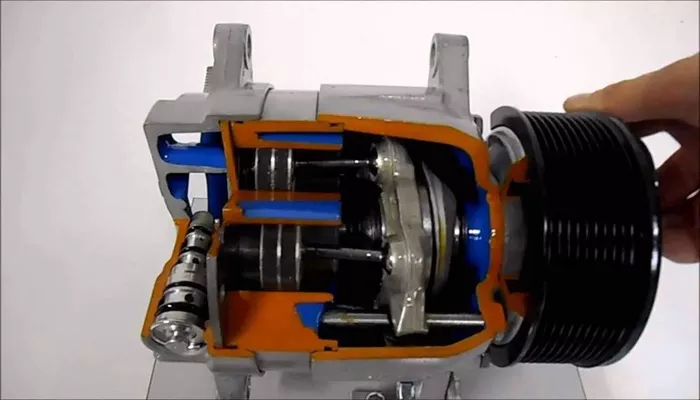Air conditioning systems are essential for maintaining comfort in homes and offices, especially during hot summer months. At the heart of every AC unit is the compressor, often referred to as the “heart” of the system. It plays a critical role in cooling by compressing refrigerant and circulating it through the system. But how long do AC compressors last? In this comprehensive guide, we’ll explore the average lifespan of AC compressors, factors that affect their longevity, maintenance tips, and signs that it’s time for a replacement.
What Is an AC Compressor and Why Is It Important?
The AC compressor is a vital component of your air conditioning system. It’s responsible for pressurizing the refrigerant, which absorbs heat from indoor air and releases it outside. Without a functioning compressor, your AC unit cannot cool your space effectively. Understanding its role helps you appreciate why maintaining it is crucial for the overall performance of your system.
How Long Do AC Compressors Typically Last?
On average, an AC compressor lasts between 10 to 15 years. However, this lifespan can vary depending on several factors, such as usage, maintenance, and environmental conditions. High-quality compressors in well-maintained systems can even last up to 20 years, while poorly maintained units may fail in as little as 8 years.
Factors That Affect the Lifespan of an AC Compressor
Several factors influence how long your AC compressor will last.
Understanding these can help you take proactive steps to extend its life:
1. Usage Frequency
The more you use your AC, the harder the compressor works. Systems in hot climates or those running year-round may experience more wear and tear, shortening the compressor’s lifespan.
2. Maintenance Practices
Regular maintenance, such as cleaning coils, changing filters, and checking refrigerant levels, can significantly extend the life of your compressor. Neglecting maintenance can lead to overheating and premature failure.
3. Installation Quality
A poorly installed compressor is more likely to fail early. Proper sizing, placement, and installation by a qualified technician are critical for optimal performance and longevity.
4. Environmental Conditions
Extreme weather conditions, such as excessive heat, humidity, or exposure to debris, can strain the compressor. Protective measures like shading the outdoor unit can help mitigate these effects.
5. Refrigerant Levels
Incorrect refrigerant levels can cause the compressor to overwork or overheat. Regular checks and adjustments by a professional are essential to maintain efficiency.
6. Electrical Issues
Voltage fluctuations or electrical problems can damage the compressor’s motor. Ensuring stable power supply and addressing electrical issues promptly can prevent premature failure.
Signs Your AC Compressor Is Failing
Recognizing the early signs of compressor failure can save you from costly repairs or replacements.
Here are some common indicators:
1. Warm Air Blowing from Vents
If your AC is blowing warm air instead of cool air, it could indicate a problem with the compressor or refrigerant levels.
2. Unusual Noises
Grinding, squealing, or clanking noises from the outdoor unit may signal compressor issues.
3. Frequent Cycling
If your AC turns on and off more frequently than usual, it could be struggling due to a failing compressor.
4. Tripped Circuit Breaker
A compressor drawing too much power can cause the circuit breaker to trip repeatedly.
5. Leaking Refrigerant
Refrigerant leaks can strain the compressor and reduce its efficiency.
How to Extend the Life of Your AC Compressor
With proper care, you can maximize the lifespan of your AC compressor.
Here are some practical tips:
1. Schedule Regular Maintenance
Annual or bi-annual maintenance by a professional can keep your compressor running smoothly.
2. Change Air Filters Regularly
Dirty filters restrict airflow, forcing the compressor to work harder. Replace filters every 1-3 months.
3. Keep the Outdoor Unit Clean
Remove debris, leaves, and dirt from around the outdoor unit to ensure proper airflow.
4. Monitor Refrigerant Levels
Low or excessive refrigerant can damage the compressor. Have a technician check and adjust levels as needed.
5. Install a Surge Protector
Protect your compressor from electrical surges with a surge protector.
6. Avoid Overworking the System
Set your thermostat to a reasonable temperature and use fans to reduce the load on your AC.
When to Replace Your AC Compressor
If your compressor is nearing the end of its lifespan or showing signs of failure, it may be time for a replacement.
Consider the following:
1. Age of the Compressor
If your compressor is over 10-15 years old and frequently requires repairs, replacement may be more cost-effective.
2. Cost of Repairs
If repair costs exceed 50% of the price of a new compressor, replacement is usually the better option.
3. Energy Efficiency
Newer compressors are more energy-efficient, which can save you money on utility bills in the long run.
4. System Compatibility
Ensure the new compressor is compatible with your existing AC system or consider upgrading the entire unit.
Conclusion
The lifespan of an AC compressor typically ranges from 10 to 15 years, but proper maintenance and care can extend its life significantly. By understanding the factors that affect its longevity, recognizing signs of failure, and following maintenance best practices, you can ensure your AC system runs efficiently for years to come. If your compressor is nearing the end of its life, consider replacing it with a modern, energy-efficient model to enhance comfort and savings.
This article provides a detailed guide to help you understand and care for your AC compressor, ensuring it lasts as long as possible while keeping your home cool and comfortable.

